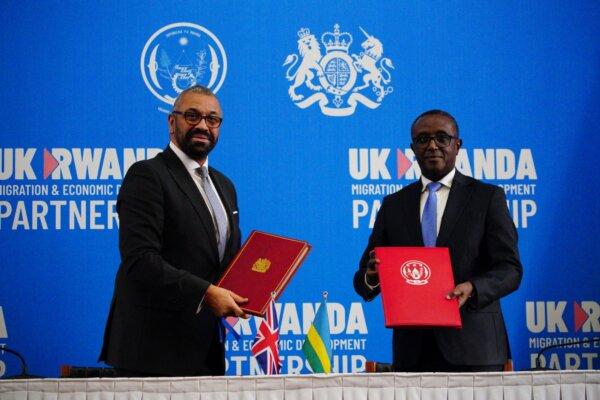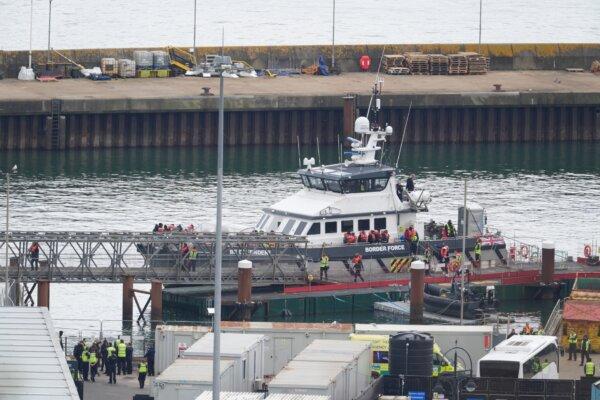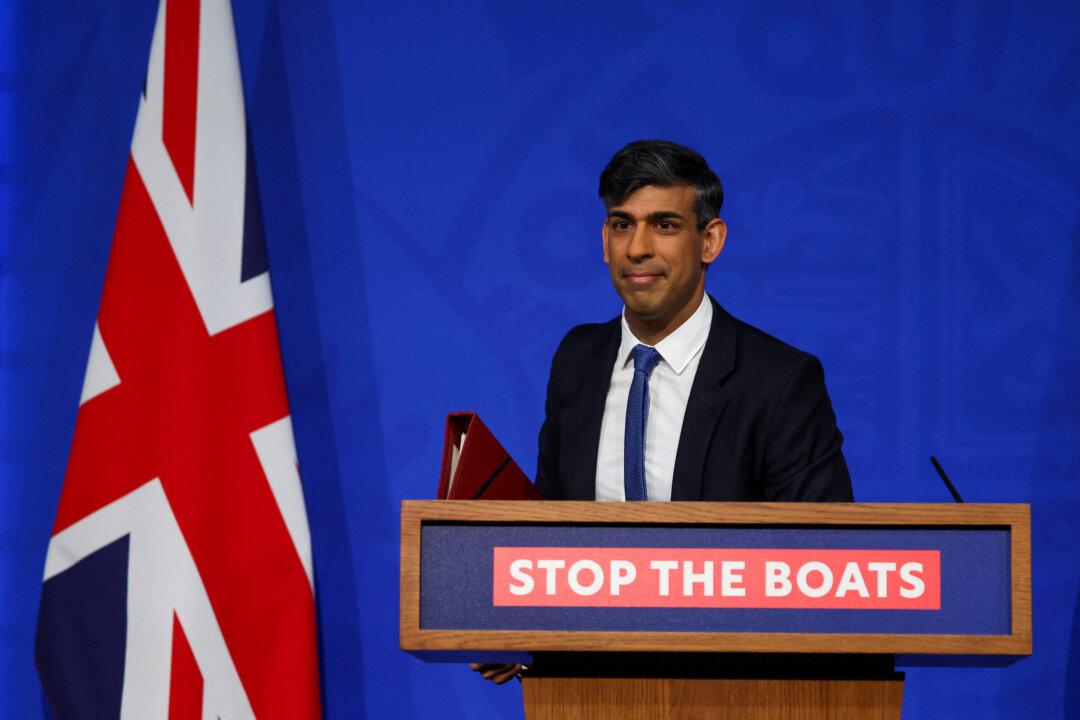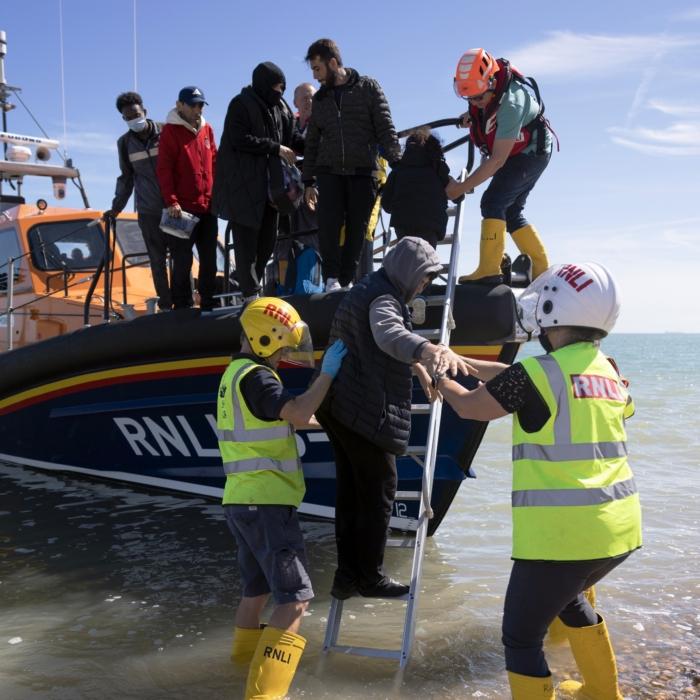The government’s Rwanda bill is set to become law after peers ended a protracted parliamentary deadlock on Monday night.
Peers conceded defeat just after midnight, having sent the bill back to the Commons five times, with MPs rejecting proposals to change it each time.
Home Secretary James Cleverly hailed the passage of the bill as a “landmark moment” in the government’s plan to stop migrant-smuggling boats, and Prime Minister Rishi Sunak said “nothing will stand in our way” of getting deportation flights to Rwanda off the ground.
The government said it has “robust operational plans” to ensure the first flight will take off by July.
During two rounds of parliamentary “ping-pong” on Monday, the House of Lords first backed by 240 votes to 211 a requirement that the east African country could not be treated as safe until the secretary of state, having consulted an independent monitoring body, made a statement to Parliament to that effect.
It was the last standing amendment out of peers’ 10 amendments when the “ping-pong” process began five weeks ago.
The government, with its majority in the Commons, rejected the proposal. Illegal migration minister Michael Tomlinson said the Rwanda treaty will not be ratified until “all necessary implementation is in place,” and the implementation will be “kept under review by the independent monitoring committee.”
Conceding defeat, crossbench peer Lord Anderson of Ipswich said there was no point insisting on his amendment because there wasn’t enough political support to push for a “double insistence,” or a stalemate between the two houses that would result in the loss of a bill.
In a video posted on social media platform X, Mr. Cleverly said, “Today is a landmark moment in our plan to stop the boats.”
The home secretary said the act will “prevent people abusing the law by using false human rights claims to block removals” and make “clear that UK Parliament is sovereign, giving government the power to reject interim blocking measures imposed by European courts.”
The prime minister said in a statement on Tuesday that the passing of the bill is “not just a step forward but a fundamental change in the global equation on migration.”
The government previously hoped to get flights off the ground in the spring, but it now says “robust operational plans are in place to ensure a first flight to Rwanda can be delivered within 10–12 weeks, with multiple flights set to take off after this.”
Detailing ongoing preparations for deportations to Rwanda, the Home Office said they include “an airfield on standby and commercial charter planes booked for specific slots.”
It follows reports that claimed the government was planning to deploy RAF aircraft after failing to find a commercial airline.

According to the Home Office, other preparations include the provision of detention spaces for 2,200 people; 200 “trained dedicated caseworkers;” 25 courtrooms “to deal with any legal cases quickly and decisively;” and 500 highly trained individuals, plus 300 more in the coming weeks, who will “escort illegal migrants all the way to Rwanda.”
Under the government’s plan, anyone who arrived illegally from a safe third country on or after March 7, 2023 would have their asylum claims deemed inadmissible and be eligible for removal to a safe third country, with limited exceptions.
Most illegal immigrants detected in recent years came on flimsy boats across the English Channel from France.
Since records began in 2018, around 120,587 people have successfully made the journey, but dozens of others have died in the Channel.
Hours after the Rwanda bill was passed, at least five people including a child died while attempting to make the journey.
The deaths of one child, a woman, and three men occurred on an overcrowded small boat carrying around 110 migrants attempting to cross the Channel. The French coastguard was still searching for survivors.
“After becoming initially stranded on the shore, the boat set out to sea again. A crowd movement apparently occurred in the overloaded boat, causing several victims,” a coastguard official said.
Neither the coast guard nor police could say how many people had been rescued or could be missing. A British Border Force boat carrying more than 20 migrants in life jackets was seen off the coast in Dover, about 20 miles from French shores.
Reacting to the deaths, Mr. Cleverly said, “These tragedies have to stop.”

Government ministers are hoping their plan to deport illegal immigrants to Rwanda will be an effective deterrent to Channel crossings, although Labour, which could be in power in a few months, categorically opposes the plan, saying it’s too expensive and won’t work.
Meanwhile, the home secretary will travel to Italy to meet his counterpart for talks on joint action on curbing illegal migration.
On Wednesday, he will become the first UK government minister to visit the island Lampedusa, which last year saw around 110,000 migrants landing on its shores.
The UK and Italy are exploring cooperation on addressing the root causes of illegal migration, the Home Office said.
Mr. Cleverly will learn how Italian authorities are working with agencies such as Frontex and international humanitarian groups to track migrant boats and save the lives of those making the journey in unseaworthy vessels.
The home secretary said: “Tackling the global migration crisis takes global solutions. Italy are one of our most crucial partners in tackling this shared challenge and have been at the forefront of arrivals into Europe.
“Our countries have shown we are willing to challenge the status quo and use innovative solutions to tackle the issues, while ferociously going after the people-smuggling gangs.”







